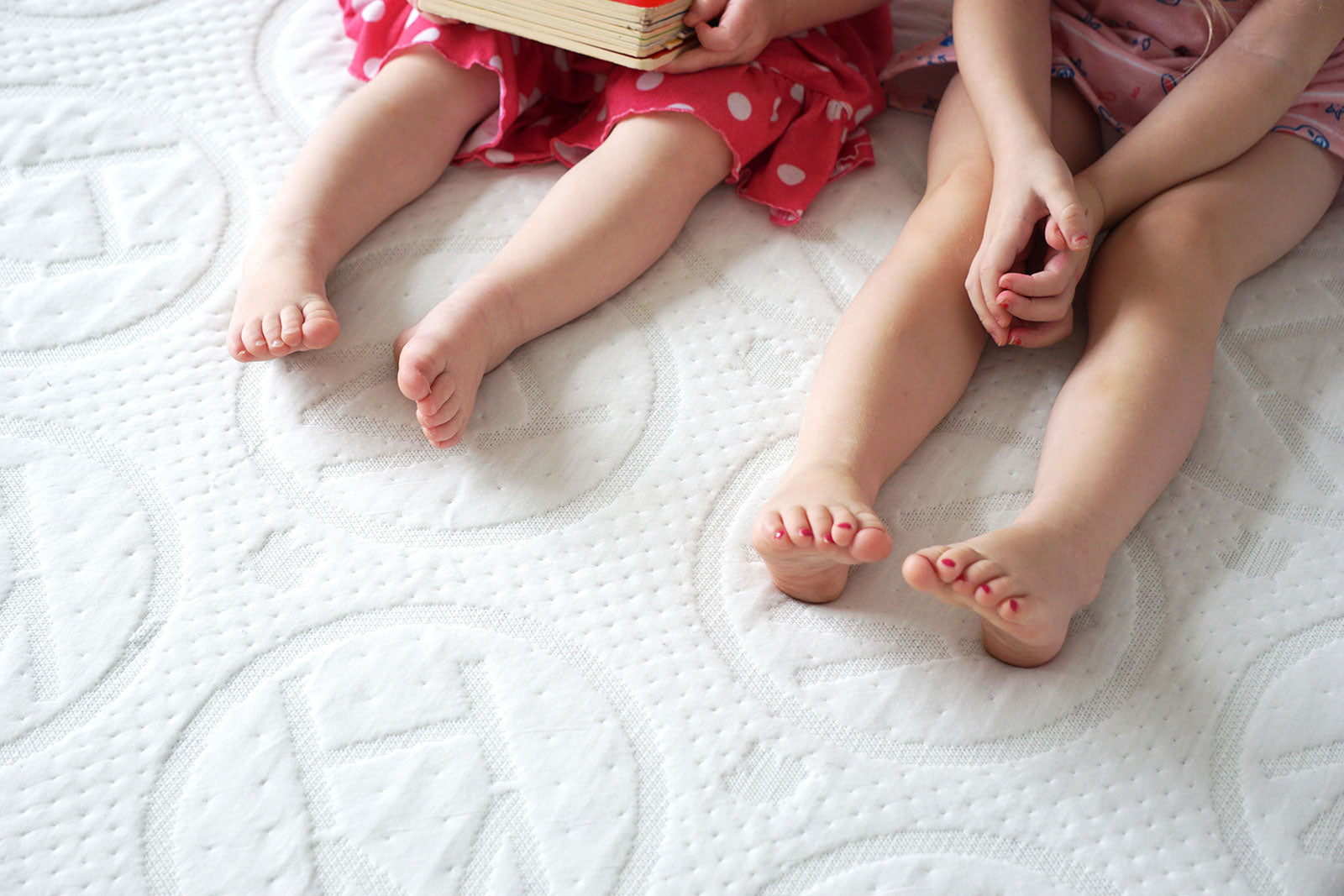Written by Dr. Joti Samra, R.Psych.

We know sleep is a critical contributor to our overall state of physical and psychological health. One of the most important functions of sleep involves allowing our bodies and our brains to recover and recharge. Sleep is even more important for children, as it directly impacts mental and physical development The topic of children and sleep can be a challenging one though. Children don’t typically understand the importance of sleep and aren’t intrinsically wired to maintain a sleep schedule and structure without external guidance. So, as a child develops, it’s up to their caregivers to manage their sleep schedule and ensure they’re getting enough sleep. Managing children’s sleep problems can be hard enough but teenagers may be even more challenging. We will also address teenagers’ sleep challenges here.
Children and sleep
Sleep patterns and needs change drastically across age ranges. For instance, those who have experienced a newborn know that sleep happens whenever the child feels like it, making the parents’ sleep schedule highly irregular. Fortunately, between the age of 6 months to 2 years, children typically begin to develop more of a regular sleep pattern. Once this happens, it’s possible to start implementing proper sleep hygiene principles.
Sleep Hygiene for Children
Here are 5 effective sleep tips for children aged 2-13 years that can help children with sleep problems:
- Maintain a regular bedtime and wake-up schedule, even on weekends. The bedtime routine should be relaxing and enjoyable (like a warm bath or reading a book). This includes a predictable bedtime routine.
- Establish a sleep-friendly environment (e.g., dark, free of distractions/electronics, consistent temperature). Keep the sleep-friendly environment consistent.
- Reduce stimulation in the 1-2 hours before bed. Implement sleep-friendly cues 1-2 hours before bedtime (e.g., put away electronics, no TV, dim the lights).
- Encourage children to fall asleep independently. Leave the child’s bedroom before they’re fully asleep- to encourage independent sleep. Give age-appropriate direction tied to a child’s developmental ability (e.g., have children put on their own pyjamas or brush their teeth on their own once they are old enough).
- Reduce and ideally eliminate caffeine-based foods (e.g., chocolate or soda pop) in the late afternoon, and no big meals before bed.
Sleep hygiene is always the best place to start when it comes to managing sleep challenges but what if it isn’t enough?
What if sleep hygiene doesn’t work?
Sleep hygiene should always be tried first when it comes to sleep challenges. For children and adults alike, maintaining consistently good sleep hygiene is typically enough to help with sleep problems. It’s important to note that sleep hygiene will likely take a few weeks, or longer, to have a noticeable impact on your child’s sleep. So be patient and consistent with their bedtime routine.
If your child still has sleep problems (such as not being able to fall asleep, or waking up in the night) some other home treatment options have been found to be effective. For example, research has found white noise played over the course of the night was able to help children with ADHD get to sleep faster and stay asleep longer.
Weighted blankets are also demonstrating some preliminary and promising effects on sleep for children with Autism Spectrum Disorder.
Teenagers and Sleep
Another age category that tends to have significant sleep challenges is teenagers. Despite the traditional angsty know-it-all attitude and resistance some teens may have to regular sleep, their brains are still developing as well as their bodies changing, so sleep is just as important during these years as it was when they were younger.
What impacts teenagers’ sleep?
Many of us can remember being a teenager and wanting to stay up excessively late, resisting structure and schedule in terms of sleep. And, as a result, feeling constantly sleep-deprived or irritated and grumpy as a result. This is not just rebellious teenager behaviour. Research has shown in the teen years circadian rhythms change drastically, as do hormones. Teenagers don’t just want to stay up longer, their body is telling them to. All the while their schooling starts just as early, if not earlier than it did when they were younger. The net result is sleep-deprivation, as environmental expectations make getting the required amount of sleep more difficult.
So, how can we support our teenagers in getting better sleep
We may think that allowing them to sleep in on the weekends to catch up on sleep is the best thing we can do. It isn’t.
Letting them sleep in actually makes things worse, as this disrupts the body’s internal clock even more. Remember – a consistent bedtime and wake up time is an important aspect of sleep hygiene – and as such, keeping a consistent schedule is still the best thing for teenagers.
Since their circadian rhythms are changing and impacting the time they want to sleep, it can be helpful to adjust this sleep rhythm. This can be done by adjusting their light exposure, such that light is increased in the mornings and decreased at nighttime.
Effectively adjusting light exposure involves (1) exposing oneself to natural light (even it it’s cloudy) shortly upon waking up in the morning, and (2) removing light in the evenings by ensuring lights are dimmed. There are blackout blinds/curtains, and discouraging use of screens like smartphones, TV’s and computers before bed.
Final Thoughts
If your child or teenager still has significant sleep problems or other contributing health issues (physically or emotionally), it’s recommended you speak to a medical professional. Sleep is a very important and incredibly complex process, so when presented with recurrent issues it should be addressed by a qualified healthcare professional and not self-diagnosed or self-medicated.
Dr. Joti Samra, R.Psych. is the Clinic Founder of Dr. Joti Samra, R.Psych. & Associates and the CEO and Founder of MyWorkplaceHealth. Learn more about their clinical counselling and workplace consulting services.



0 comments